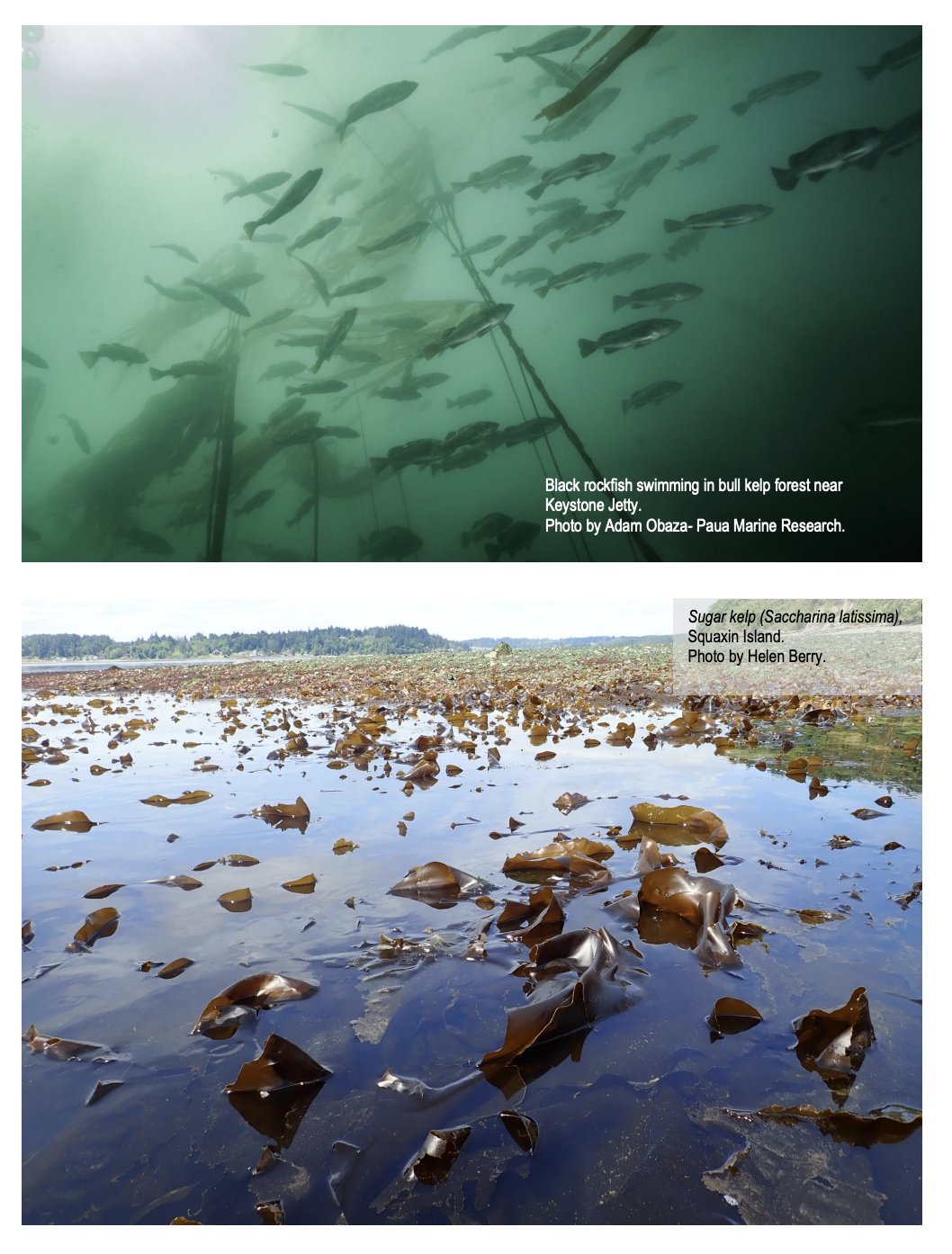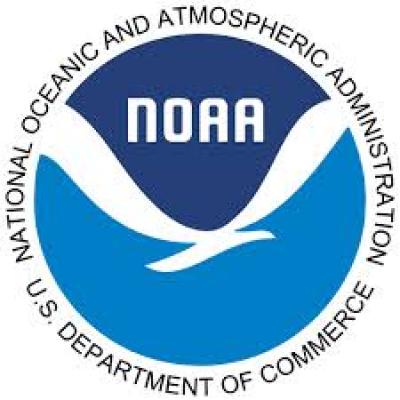Puget Sound Kelp Conservation and Recovery Plan

Posted by
CAKE TeamPublished
Abstract
Kelp—some of the largest of all seaweeds—form extensive living structures that provide an array of valuable ecosystem goods and services to deep water and nearshore environments in Puget Sound. These underwater forests act as foundations for diverse and productive nearshore ecosystems, supporting food webs and providing critical habitat for a wide array of marine life.
Anecdotal observations and research suggest that Puget Sound is losing its kelp forests. Extensive losses of bull kelp have been documented in South and Central Puget Sound, and localized declines have been observed throughout Puget Sound. Concerns also exist about potential losses to other kelp species, yet trends are unknown due to data gaps.
Although kelp distribution and drivers of declines in Puget Sound are not well understood, data from kelp ecosystems in other temperate coastal regions indicate that widespread loss of kelp habitats would be devastating to the Puget Sound ecosystem. There is a consensus in the scientific community that coordinated action is needed to reverse downward trends in kelp populations by addressing both longstanding and emerging stressors.
Cumulative impacts from human stressors threaten kelp. These impacts include degraded water quality from pollution, nutrient loading, increased turbidity, and sediment deposition; introduction of invasive species; and alterations to food-web dynamics from commercial and recreational fishing. Additionally, warming ocean waters and other impacts from climate change pose new and intensifying threats to kelp resilience that often exacerbate the negative effects of other stressors.
This Puget Sound Kelp Conservation and Recovery Plan (Kelp Plan) provides a framework for coordinated research and management actions to protect these fundamental and iconic kelp species from a suite of global and local stressors. Successfully achieving kelp conservation and recovery will require a collaborative effort between our community of Tribes, managing entities, and stakeholders in Puget Sound. Additional collaboration with Canadian federal, provincial, and First Nation entities will support conservation and recovery efforts in the Puget Sound/Georgia Basin region.
Actions identified in this Kelp Plan address six strategic goals:
- Understand and reduce kelp stressors
- Deepen understanding of the value of kelp to Puget Sound ecosystems and integrate into management
- Describe kelp distribution and trends
- Designate kelp protected areas
- Restore kelp forests
- Promote awareness, engagement, and action from user groups, Tribes, the public, and decision-makers
The Kelp Plan Update, published in 2023, summarizes progress made in early 2020 through early 2023 and provides workshop-generated needs and next steps to continue our collective progress towards accomplishing the Kelp Plan goals and actions.
Citation
Calloway, M., D. Oster, H. Berry, T. Mumford, N. Naar, B. Peabody, L. Hart, D. Tonnes, S. Copps, J. Selleck, B. Allen, and J. Toft. (2020). Puget Sound kelp conservation and recovery plan. Prepared for NOAA-NMFS, Seattle, WA. 52 pages plus appendices. Available at: https://nwstraits.org/our-work/kelp/.




